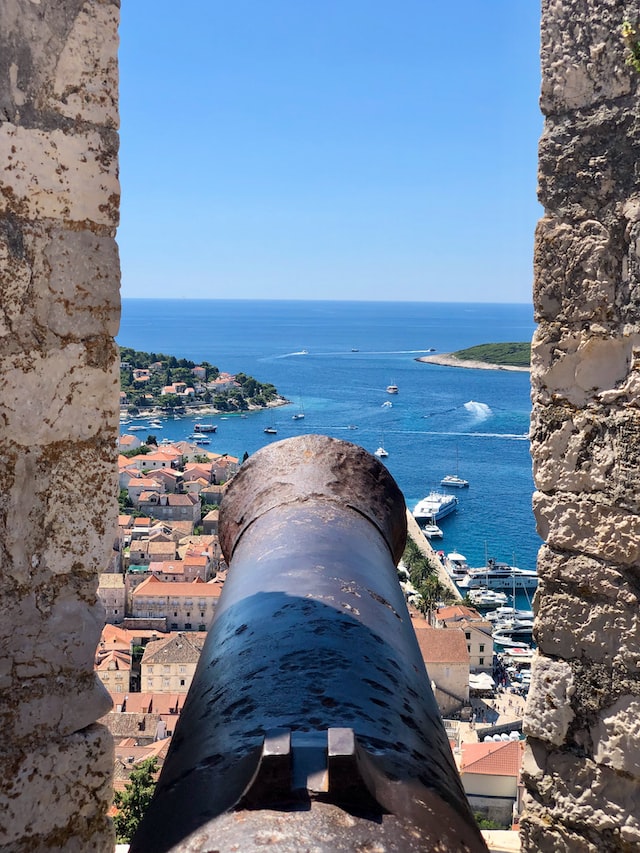What's the Difference Between 'Cannon' and 'Canon'?
In this blog post we look at when to use cannon and when to use canon.
'Cannon' or 'Canon'?
There are two different words that are spelled "cannon" and "canon," and they have different meanings.
"Cannon" can refer to a large artillery gun, or a heavy gun mounted on a carriage or turret. It can also refer to a large-bore firearm, such as a shotgun.
"Canon," on the other hand, can refer to a set of rules or principles that are accepted as authoritative or fundamental in a particular field.
It can also refer to a collection of literary or artistic works that are considered to be the most important or representative of a particular genre or period.
Here are some example sentences to illustrate the difference between the words “cannon” and “canon”:
-
The cannon was used to fire cannonballs at the enemy's fortifications. (referring to the gun)
-
The cannon was mounted on a turret and could rotate 360 degrees. (referring to the gun)
-
The cannon was so heavy that it required a team of horses to move it. (referring to the gun)
-
The canon of classical music includes works by Beethoven, Mozart, and Bach. (referring to the collection of artistic works)
-
The canon of Shakespeare's plays includes tragedies, comedies, and histories. (referring to the literary collection)
-
The canon of scientific knowledge includes the laws of physics and the principles of biology. (referring to the scientific literary collection)
Examples of Cannon in a Sentence
The cannon will be used to defend the castle against attackers. The cannon is being loaded with gunpowder and a cannonball. The cannon has been used to attack enemy ships. The cannon was used to destroy enemy fortifications. The cannon will be fired by lighting a fuse that ignites the gunpowder. The cannon is a formidable weapon that can cause significant damage to enemy fortifications. The cannon had been mounted on a ship and used to attack enemy vessels. The cannon will be an essential weapon in the upcoming battle. The cannon is being made of iron and will weigh several tons. The cannon had been an important weapon in medieval warfare.
Examples of Canon in a Sentence
The canon of classical music includes works by Beethoven, Mozart, and Bach. The canon of Shakespeare's plays includes tragedies, comedies, and histories. The canon of scientific knowledge includes the laws of physics and the principles of biology. The canon of Western literature includes works by authors such as Dante, Chaucer, and Milton. The canon of great films includes classics such as Casablanca and Citizen Kane. The canon of art history includes works by artists such as Michelangelo, Rembrandt, and Monet. The canon of religious texts includes the Bible, the Quran, and the Bhagavad Gita. The canon of jazz includes influential musicians such as Louis Armstrong and Duke Ellington. The canon of classical mythology includes stories about gods and goddesses such as Zeus and Athena. The canon of pop music includes iconic artists such as Elvis Presley and Madonna.

